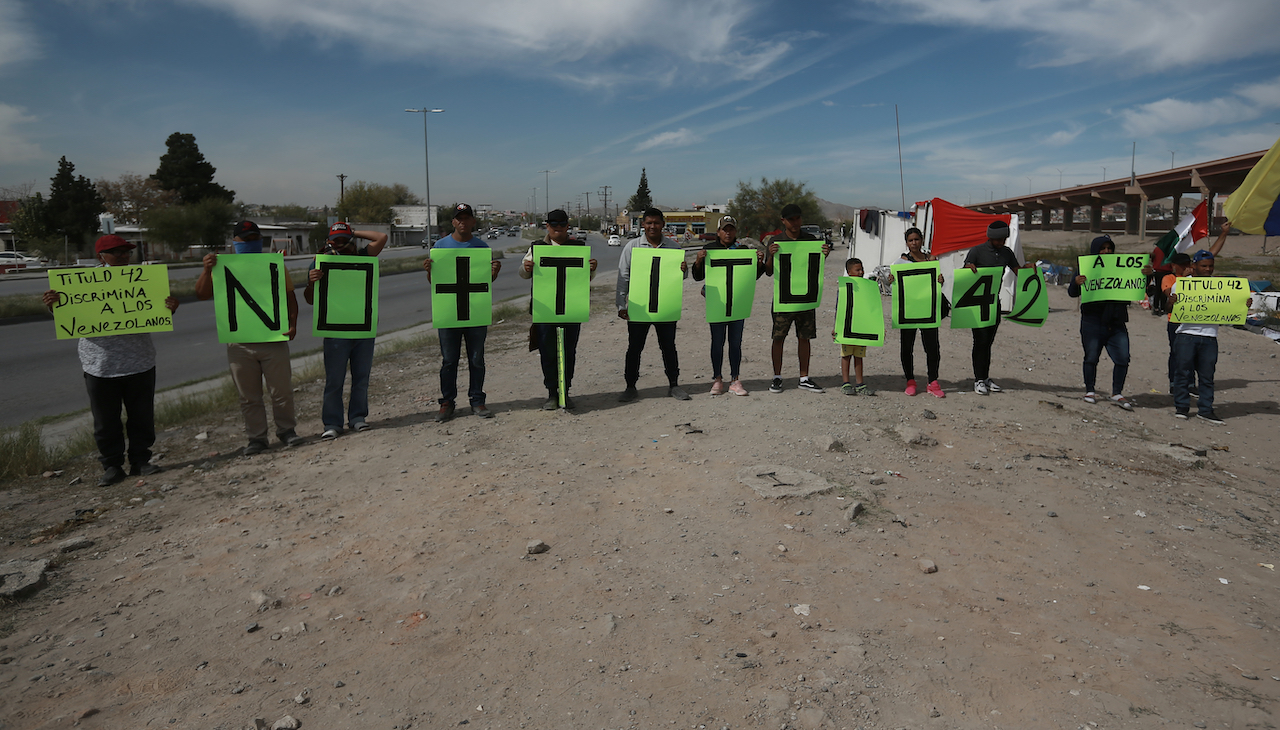
A U.S. Appeals Court sides with immigrant rights groups, strikes down Title 42
After hitting an impasse in negotiations with the Biden administration over Title 42 expulsions, immigrant rights advocates took to the court and won, for now.
In March, immigrant rights and advocacy groups challenged the government to put an end to a controversial provision that blocked migrants from seeking asylum in the U.S. and scored a short-term victory, announced on Nov. 15.
The decision partly concludes a two-year legal battle with the Biden administration to discontinue Trump’s policy.
A D.C Court of Appeals argued that, in no uncertain terms, “aliens who make it one foot over the border are on U.S. soil and are thus entitled to certain statutory protections,” Judge Justin Walker, who authored the majority opinion, wrote in the court’s ruling.
The court also argued that while crossing the border does not make an immigrant’s presence legal in the U.S., or a direct path to asylum, the government “cannot expel aliens to countries where their “life or freedom would be threatened” on account of their “race, religion, nationality, membership in a particular social group, or political opinion” or where they will likely face torture,” according to the court’s opinion.
Huisha-Huisha v. Mayorkas originally went to court in 2021 after numerous failed attempts to compel the Biden administration to reverse provisions of Title 42, a controversial Trump-era policy used to unilaterally block refugees from seeking asylum on the basis of public health concerns, and allowing for their immediate expulsion.
Trump’s use of the policy, according to the American Civil Liberties Union (ACLU), the plaintiff in the lawsuit, was “an unprecedented and unlawful invocation of the Public Health Service Act, located in Title 42 of the U.S. Code.”
ACLU, in consensus with public health experts, argued the U.S. had the resources to receive and process asylum seekers.
“It’s an abuse of existing federal health laws, twisted for immigration purposes,” David Bennion, an immigrant rights activist in Pennsylvania, previously told AL DÍA.
In September 2021, even though a district court ruled that Title 42 is likely unlawful, the Biden administration appealed in continuing to uphold the provisions, dealing another blow to the U.S. immigrant population in a context where protections hinge on court-by-court rulings.
But immigrants enjoy relief following the appeals court's decision to approve the preliminary injunction, temporarily blocking the Title 42 provisions until a more permanent solution is found.
“It is shameful that the Biden administration has fought so hard to defend the Title 42 policy, and they should reverse course immediately,” Neela Chakravartula, managing attorney at the Center for Gender & Refugee Studies, wrote in a statement.
RELATED CONTENT
“Although today's ruling is technically limited to families, the Court's reasoning makes clear that the government cannot return anyone to a country where they will face persecution or torture,” she continued.
The Biden administration has repeatedly come under fire this year for unfulfilled promises of pushing for immigration reform, in addition to their continued position to uphold Title 42, despite furor from advocacy organizations.
In addition to Title 42, the administration has also halted any reform to 287 (g), an extremely controversial program that delegates Immigration & Customs Enforcement procedures to local law enforcement, of which the ACLU has documented hundreds of instances of immigrant abuse.
Biden officials have not commented publicly on whether the administration plans to act on 287 (g). But in 2020, then-presidential nominee Kamala Harris pledged to put an end to the program in a closed-door meeting, prompting endorsements from immigrant advocacy groups.
Those same organizations found themselves protesting at Capitol Hill a year later.
Also on the court’s docket is DACA, a program that grants protections to migrant children in two-year intervals. DACA has lived in the depths of the nations’ courts, with no end in sight.
Judges often find themselves on competing sides of the political conversation since applications for DACA renewals are at an all-time high.











LEAVE A COMMENT: